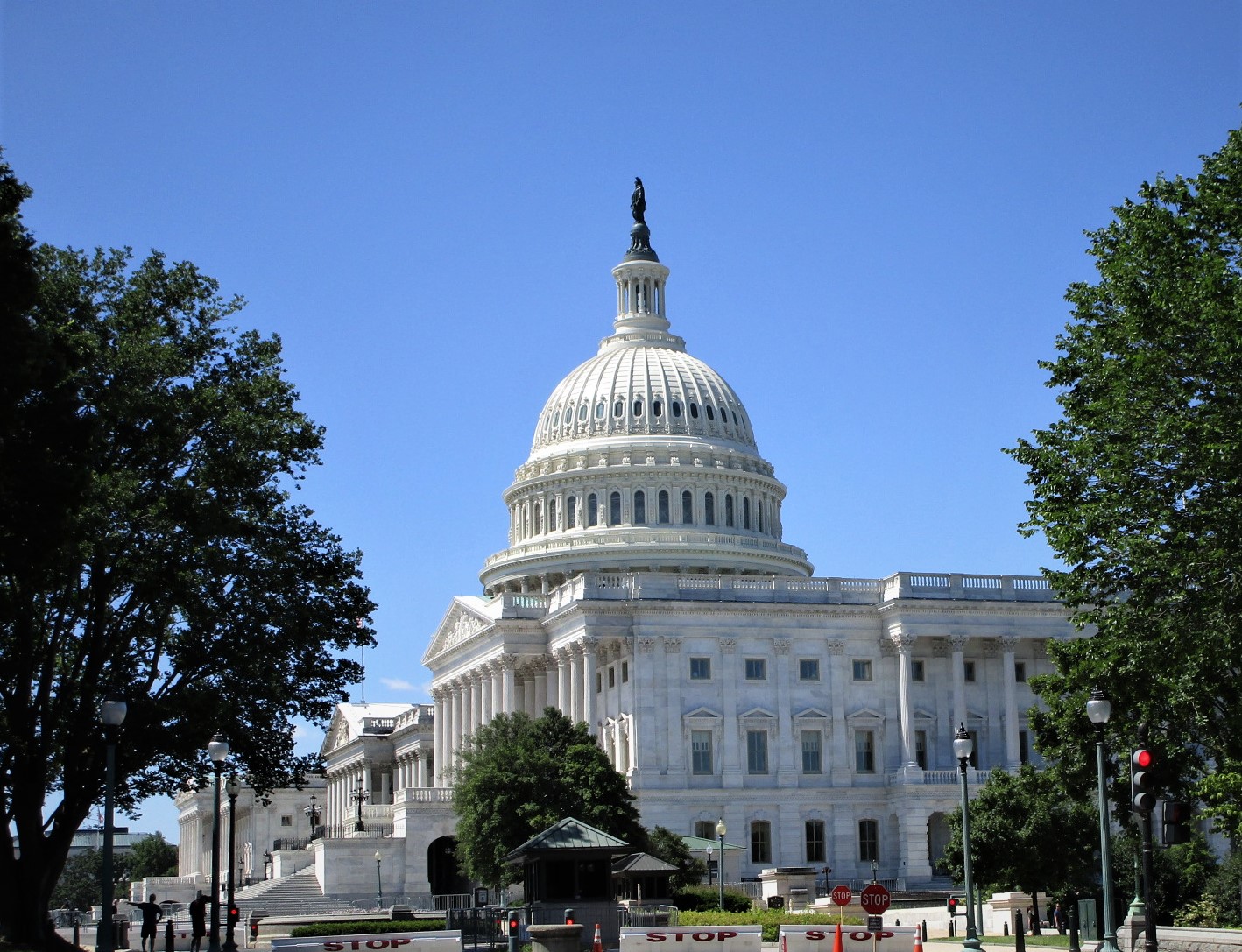House Passes Infrastructure Bill with Broadband Billions
Vote was primarily along party lines

The smarter way to stay on top of the multichannel video marketplace. Sign up below.
You are now subscribed
Your newsletter sign-up was successful
After much debate and negotiation among progressive and moderate Democrats, the House voted late Friday (Nov. 5) to approve the $1.2 trillion Infrastructure Investment and Jobs Act bill (H.R. 3684) that includes tens of billions of dollars for broadband, including grants to all the states and territories and for middle mile and last mile connectivity.
There is also money for a broadband consumer disclosure labeling regime.
Although infrastructure investment has bipartisan support, the vote was along primarily party lines, but with some key Republican supporters. The vote was 228 to 206, with 215 Democrats voting yes, but six voting no. Two hundred Republicans voted no, and 13 voted yes.
The Senate has already approved the bill, so the next stop is the President's desk.
Cable broadband operators are all for the government investment. NCTA has said the legislation addresses two critical challenges, "first, a focused effort to prioritize and build internet infrastructure in areas without service, and second, a stronger government program to help low-income Americans subscribe to and use this critical service," said NCTA president Michael Powell when the Senate passed the bill back in August.
Part of the deal struck by progressives, they have agreed to vote next week on the Build Back Better bill, which also includes more than a billion dollars for broadband.
"We are long overdue for improving our nation’s crumbling roads and bridges, modernizing our rail, and ensuring Americans have access to reliable, affordable internet," said Sen. Richard Blumenthal (D-Conn.).
The smarter way to stay on top of the multichannel video marketplace. Sign up below.
“ACA Connects appreciates the U.S. House of Representatives’ work to address the broadband needs of consumers across the country. Our member companies, who provide broadband service to urban and rural customers in all 50 states, know just how vital broadband is," said ACAC president Matt Polka. “They have worked to upgrade and extend their networks to reach the unserved, and they have developed programs to connect in-need consumers. To that end, ACA Connects appreciates that the legislation targets deployment of funding in a technologically neutral way to where it is most needed -- to unserved and underserved areas -- with a robust challenge process to limit overbuilding, and dedicates funds to get low-income consumers connected, giving them the critical communications tools they need for school, work, and other day-to-day needs."
“This is a historic moment in broadband policy, demonstrating bipartisan agreement around a single idea: Universal, affordable broadband means a stronger future for communities across the country," said Kathryn de Wit, project director for Pew’s broadband access initiative. “The Infrastructure Investment and Jobs Act provides an unprecedented investment in broadband infrastructure, devices, digital literacy, and affordability and will accelerate America’s progress toward universal high-speed internet access. It continues Congress’ efforts to improve federal standards for speed, accountability, and equity in broadband. And, for the first time, Congress has empowered entities closest to the problem of insufficient and unaffordable broadband access—state and local governments—to solve it. Some of them have already made inroads."
“Today’s passage of the bipartisan infrastructure bill is a historic achievement and a win for the American people," said the Internet Innovation Alliance. "Greenlighting the largest investment in nearly a century in our nation’s physical infrastructure, including high-speed broadband, will accelerate social progress, encourage economic growth and ensure America’s ability to remain a global leader. IIA applauds the bill's inclusion of funds to close the digital divide, so the benefits of broadband can reach all Americans as quickly as possible.”
“The Infrastructure Investment and Jobs Act is a sweeping commitment to upgrade the physical and digital infrastructure that reinforces the United States’ economic competitiveness," said ITI president Jason Oxman. "These investments are critical in closing the digital divide and ensuring every American has access to broadband service, internet-connected devices, and digital literacy skills, which provide a foundation for participation in the 21st-century global economy and ensure U.S. companies continue to be global leaders in innovation. We look forward to partnering with government to implement this all-important legislation.”
USTelecom president Jonathan Spalter said the bill was imperfect but that, "on balance, [it] represented meaningful progress to advance America’s shared connectivity goals, adding: "At the end of the day, the best and highest purpose of this infrastructure funding is to augment private capital and ingenuity to finish the job of connecting every home, business, student, healthcare provider and innovator in the country. That’s exactly what we’re built to do."
Not joining in the applause was house Energy & Commerce Committee Ranking Member Cathy McMorris Rodgers (R-Wash.). She called the bill a "reckless tax and spending spree."
"The Democrats’ radical agenda to spend a reckless amount of money will raise costs and make it even harder for people to build a better life," she said.
Contributing editor John Eggerton has been an editor and/or writer on media regulation, legislation and policy for over four decades, including covering the FCC, FTC, Congress, the major media trade associations, and the federal courts. In addition to Multichannel News and Broadcasting + Cable, his work has appeared in Radio World, TV Technology, TV Fax, This Week in Consumer Electronics, Variety and the Encyclopedia Britannica.

